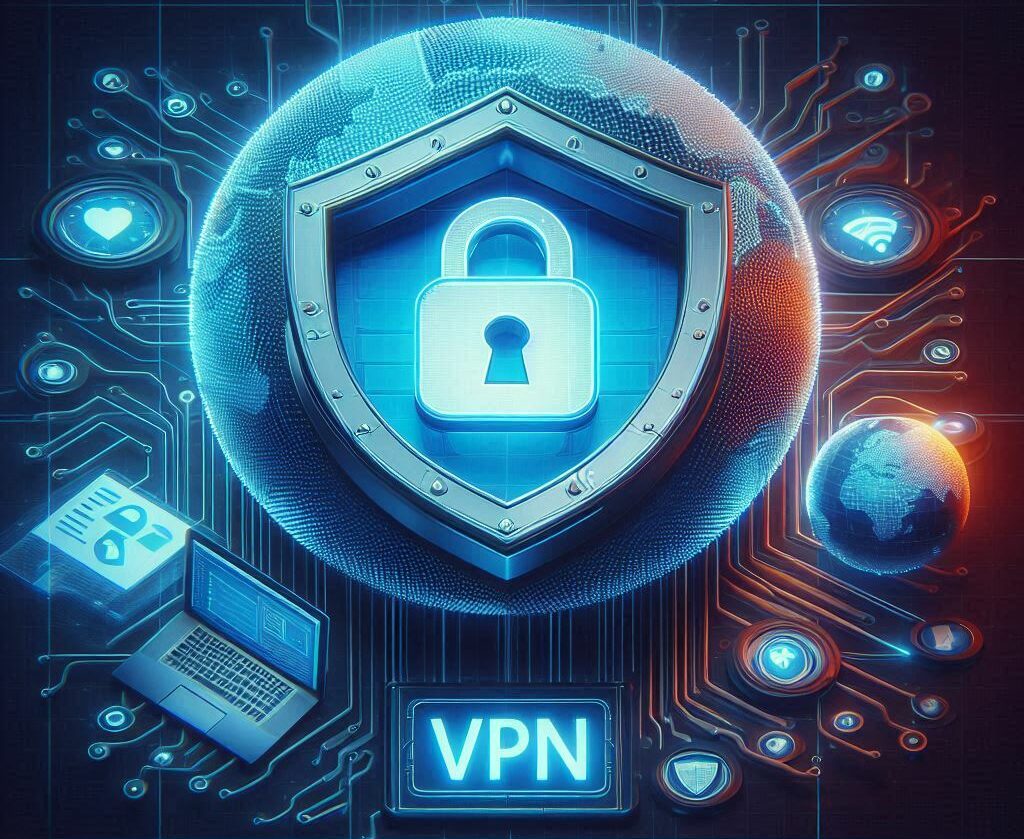Introduction to VPNs: Safeguarding Your Online Presence
In an increasingly digital world, the importance of protecting our online presence cannot be overstated. One of the most effective tools for enhancing online privacy and security is a Virtual Private Network, or VPN. But what exactly is a VPN, and how does it work? Let’s dive into the details.
What is a VPN?
A VPN, or Virtual Private Network, is a technology that allows you to create a secure and encrypted connection over a less secure network, typically the internet. It essentially acts as a tunnel between your device and the internet, encrypting your data and masking your IP address. This ensures that your online activities remain private and secure from prying eyes.
How Does a VPN Work?
Here’s a step-by-step explanation of how a VPN works:
- Connection to a VPN Server: When you use a VPN, your device connects to a VPN server. This server can be located anywhere in the world, depending on the VPN service you are using.
- Data Encryption: Once connected, all the data sent and received by your device is encrypted. This means that even if someone intercepts your data, they won’t be able to read or make sense of it.
- IP Address Masking: The VPN server assigns you a new IP address. This masks your real IP address, making it appear as though you are browsing from a different location. This is particularly useful for accessing geo-restricted content.
- Secure Data Transmission: The encrypted data travels through the secure tunnel established by the VPN to the internet. The websites and online services you access see the IP address of the VPN server, not your actual IP address.
Importance of Online Privacy and Security
Now that we understand what a VPN is and how it works, let’s highlight the importance of online privacy and security.
Protecting Personal Information
In today’s digital age, our personal information is more vulnerable than ever. From social media accounts to online banking, we share a vast amount of personal data online. Without proper protection, this information can be intercepted by cybercriminals and used for malicious purposes.
A VPN helps protect your personal information by encrypting your data. This ensures that even if your data is intercepted, it cannot be read or misused. It’s like sending a locked letter that only the intended recipient can open.
Avoiding Surveillance and Censorship
Many governments and organizations monitor online activities for various reasons, including national security and censorship. In some countries, access to certain websites and online services is restricted or monitored.
Using a VPN allows you to bypass surveillance and censorship. By masking your IP address and encrypting your data, a VPN makes it difficult for anyone to track your online activities. This is especially important for individuals living in countries with strict internet regulations.
Securing Public Wi-Fi Connections
Public Wi-Fi networks, such as those in cafes, airports, and hotels, are notoriously insecure. These networks are prime targets for hackers looking to intercept sensitive information.
When you connect to a public Wi-Fi network using a VPN, your data is encrypted and protected from prying eyes. This ensures that your online activities remain private, even on insecure networks.
Accessing Geo-Restricted Content
Many online services and streaming platforms restrict access to content based on geographical location. For example, a show available on Netflix in the US may not be available in other countries.
A VPN allows you to bypass these geo-restrictions by masking your IP address and making it appear as though you are browsing from a different location. This enables you to access content that would otherwise be unavailable in your region.
Choosing the Right VPN Service
With numerous VPN services available, how do you choose the right one? Here are some key factors to consider:
Security and Privacy Features
Look for a VPN that offers strong encryption protocols, a no-logs policy, and additional security features such as a kill switch and DNS leak protection. These features ensure that your data remains secure and private at all times.
Server Locations
Choose a VPN with a wide range of server locations. This allows you to access content from different regions and ensures a faster and more reliable connection.
User-Friendly Interface
Opt for a VPN service with a user-friendly interface that makes it easy to connect and switch between servers. A good VPN should be accessible to both tech-savvy users and beginners.
Speed and Performance
Speed is a crucial factor when choosing a VPN. Look for a service that offers fast and reliable connections, as a slow VPN can significantly impact your browsing experience.
Customer Support
Reliable customer support is essential, especially if you encounter issues or have questions about your VPN service. Look for a provider that offers 24/7 support through various channels, such as live chat, email, or phone.
Top VPN Services to Consider
Here are some top VPN services that offer robust security, fast connections, and user-friendly interfaces:
- ExpressVPN: Known for its high-speed servers and strong security features, ExpressVPN is a popular choice for both beginners and advanced users.
- NordVPN: Offers a wide range of server locations, double encryption, and a strict no-logs policy, making it a top choice for privacy-conscious users.
- CyberGhost: Provides an easy-to-use interface, fast connections, and dedicated servers for streaming and torrenting.
- Surfshark: Known for its affordability and unlimited device connections, Surfshark is an excellent option for families and multiple-device users.
- Private Internet Access (PIA): Offers strong security features, a large server network, and customizable settings for advanced users.
In an era where online privacy and security are paramount, using a VPN is a crucial step in safeguarding your digital life. By encrypting your data and masking your IP address, a VPN ensures that your online activities remain private and secure. Whether you want to protect your personal information, avoid surveillance, secure public Wi-Fi connections, or access geo-restricted content, a VPN is an essential tool in your digital arsenal. Choose the right VPN service that meets your needs, and enjoy a safer and more secure online experience.

